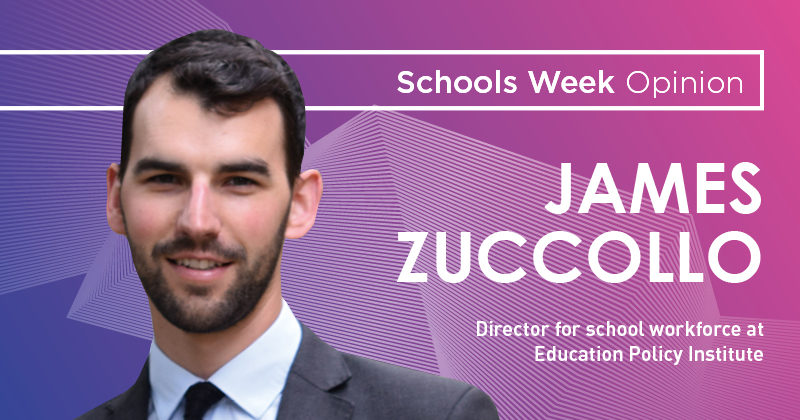New ideas rarely come from the expected places. So it has proven this week with regards to the difficult political and economic considerations around teacher pay. But could a development at the United Learning academy trust hold the key to unlock higher salaries?
The new government arrived with a weight of expectation on their shoulders: relations between teachers and the previous government were strained and the new secretary of state promised to reset that relationship.
Her predecessor had left her the task of negotiating a new pay settlement with teachers but, as the chancellor made clear, there is no extra money on the way. It is a daunting task, and few expect the new government to pull a rabbit out of the hat.
However, before she could make her move United Learning’s CEO, Jon Coles stole the headlines by announcing that his trust would introduce a new pension scheme that would increase teachers’ pay by up to 24 per cent without an increase in funding.
Briefly, the scheme is an alternative to the usual Teacher Pension Scheme (TPS) that would allow teachers to reduce their pension contributions and increase their take-home pay if they wish.
Union leaders were quick to criticise the scheme, calling it a threat to the TPS’ stability. They have asked Bridget Philipson to intervene and ban any such alternative. They claim the scheme would eventually leave teachers worse off and that it risks undermining the TPS.
Coles responded forcefully with a point-by-point rebuttal, arguing that it was right to allow teachers to choose to buy a home rather than force them to contribute to an expensive pension scheme that is, in the end, underwritten by taxpayers.
Unfortunately, the debate has so far generated more heat than light. Opinions have already polarised between those who favour giving teachers more choice over their compensation and those who believe that the TPS is a cornerstone of the profession and schools should not be able to tamper with it.
We should thank United Learning for bringing new ideas where we were short of them
What has remained unknown until today is whether teachers want more choice and, crucially, whether it will have the desired effect of increasing teacher retention and recruitment.
Today, we saw the first results of a survey of teachers’ attitudes to pension flexibility. In a survey of 10,700 teachers, Teacher Tapp found that 18 per cent would prefer to have a higher salary today, even if it meant a lower pension in future. A further 20 per cent were uncertain but not opposed.
Among teachers in their twenties, over half were either in favour or unsure. These numbers are not a judgment on United Learning’s scheme, but they do indicate that teachers are far more divided on the question of flexible compensation than the unequivocal response of teaching unions indicates.
Of course, United Learning is not the first to offer an alternative to the TPS. Defined benefit schemes like the TPS are increasingly uncommon in the private sector because they have the potential to dramatically increase in cost.
In March 2016, the TPS itself was assessed to be £22bn in deficit, which led to schools’ contribution rate rising in 2019, from 16.5 per cent of staff salaries to 23.7 per cent. That pressure led a fifth of independent schools to leave the scheme within two years.
Schools’ contribution rates have since increased again to 28.7 per cent, which means they have more than doubled since 2012. That has prompted more schools and trusts to consider whether offering alternatives might benefit their staff.
There are also overseas examples of teachers opting for more pension flexibility. In the USA, teachers tend to have pension schemes managed at a more local level than in England, and many of those are also grappling with the spiralling cost of traditional, defined benefit schemes.
That has led to a proliferation of alternatives and many US school districts offer teachers a choice of retirement plans. In Florida and Washington, researchers have found that up to one-third of teachers actively choose a more flexible pension option, such as a defined contribution or hybrid scheme, even when defined benefit schemes are the default (as they are in United Learning’s new plan).
United Learning may have kicked off the debate, but it has only just begun. At EPI, we are planning more research into teachers’ attitudes to pension flexibility and the impact of that choice on teacher retention and recruitment, working closely with Teacher Tapp to ensure teachers’ views are clearly represented.
The new secretary of state has yet to make her move and the unions are still calling for a ban on United Learning’s scheme. More evidence is required on what will most benefit teachers, but we should thank United Learning for bringing new ideas to a long-running policy problem that was starting to look short of them.











